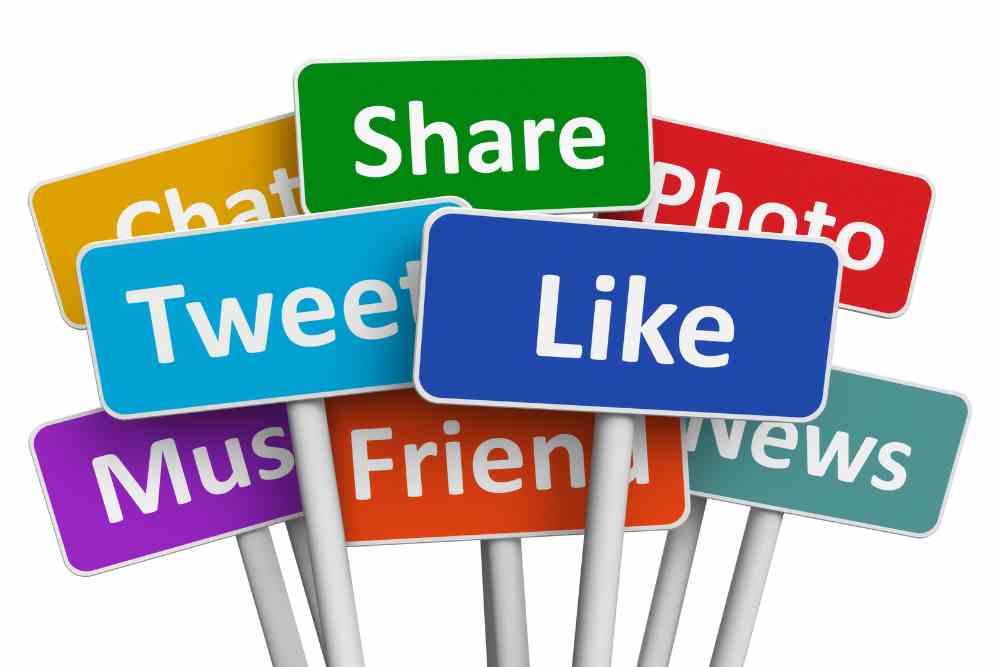Harnessing Social Media for Customer Relationship Management

Social media has revolutionized the way businesses interact with their customers. With the rise of platforms like Facebook, Twitter, and Instagram, companies now have the opportunity to engage with their audience on a more personal level. This shift has led to the emergence of a new approach to customer relationship management (CRM) – one that leverages the power of social media to build stronger connections and drive business growth.
The Importance of Customer Relationship Management
Customer relationship management is a vital aspect of any successful business. It involves managing interactions with existing and potential customers to foster loyalty, improve customer satisfaction, and ultimately drive sales. Traditional CRM strategies often relied on phone calls, emails, and face-to-face meetings to maintain relationships with customers. However, with the advent of social media, businesses now have a powerful tool at their disposal to enhance their CRM efforts.
The Power of Social Media in CRM
Social media platforms offer a unique opportunity for businesses to connect with their customers in real-time. By leveraging the power of social media, companies can gain valuable insights into their customers’ preferences, needs, and behaviors. This information can then be used to tailor marketing campaigns, improve products or services, and provide personalized customer experiences.
One of the key advantages of using social media for CRM is the ability to engage with customers on a one-on-one basis. Unlike traditional CRM methods, social media allows businesses to have direct conversations with their customers in a public forum. This not only provides transparency but also allows other customers to see how the company handles customer inquiries and concerns.
Case Study: Starbucks
Starbucks is a prime example of a company that has successfully harnessed the power of social media for CRM. The coffee giant has built a strong online presence and actively engages with its customers on platforms like Twitter and Instagram. Starbucks uses social media to not only promote its products but also to listen to customer feedback and address any issues or concerns.
For instance, when a customer tweeted about a misspelled name on their Starbucks cup, the company responded promptly, apologized for the mistake, and offered to send a replacement cup. This public display of excellent customer service not only resolved the issue but also showcased Starbucks’ commitment to customer satisfaction.
Using Social Media for Customer Feedback
Social media platforms provide an ideal channel for collecting customer feedback. By monitoring mentions, comments, and direct messages, businesses can gain valuable insights into customer sentiment and identify areas for improvement. This real-time feedback loop allows companies to address customer concerns promptly and make necessary adjustments to their products or services.
Furthermore, social media platforms offer a more convenient and accessible way for customers to provide feedback. Instead of filling out lengthy surveys or making phone calls, customers can simply leave a comment or send a direct message. This ease of use encourages more customers to share their opinions, resulting in a larger pool of feedback for businesses to analyze.
Case Study: Nike
Nike, the global sportswear giant, has effectively used social media to gather customer feedback and improve its products. The company actively encourages its customers to share their experiences and opinions on platforms like Instagram and Twitter. Nike’s social media team closely monitors these channels and responds to customer feedback, whether it’s positive or negative.
For example, when a customer tweeted about a design flaw in one of Nike’s shoes, the company acknowledged the issue and promised to address it in future product releases. This level of responsiveness not only shows that Nike values its customers’ opinions but also helps build trust and loyalty among its customer base.
Personalizing Customer Experiences
Social media allows businesses to personalize their interactions with customers, creating a more tailored and meaningful experience. By analyzing customer data and social media behavior, companies can gain insights into individual preferences and interests. This information can then be used to deliver targeted content, offers, and recommendations.
For example, a clothing retailer can use social media data to identify customers who have shown an interest in a particular brand or style. The retailer can then send personalized recommendations or exclusive offers to these customers, increasing the likelihood of a purchase. This level of personalization not only enhances the customer experience but also drives customer loyalty and repeat business.
Case Study: Amazon
Amazon, the e-commerce giant, is known for its highly personalized customer experiences. The company leverages social media data to recommend products to its customers based on their browsing and purchase history. By analyzing customer behavior, Amazon can predict what products a customer might be interested in and display personalized recommendations on their website and social media ads.
This personalized approach has been highly successful for Amazon, with a significant portion of its sales coming from these personalized recommendations. By tailoring the customer experience to individual preferences, Amazon has been able to build a loyal customer base and drive repeat purchases.
Integrating Social Media with CRM Platforms
To fully harness the power of social media for CRM, businesses should consider integrating social media platforms with their existing CRM systems. This integration allows for a seamless flow of data between social media and CRM platforms, enabling businesses to track customer interactions, analyze social media data, and provide a more holistic view of the customer journey.
There are several CRM platforms available that offer social media integration, such as SaasExpert.ca. These platforms allow businesses to monitor social media mentions, track customer sentiment, and respond to customer inquiries directly from the CRM system. By consolidating customer data from various sources, businesses can gain a comprehensive understanding of their customers and deliver more personalized experiences.
Social media has transformed the way businesses approach customer relationship management. By leveraging the power of social media, companies can engage with their customers on a more personal level, gather valuable feedback, and deliver personalized experiences. Case studies of companies like Starbucks, Nike, and Amazon demonstrate the effectiveness of harnessing social media for CRM.
Integrating social media with CRM platforms, such as SaasExpert.ca, allows businesses to streamline their CRM efforts and gain a comprehensive view of their customers. As social media continues to evolve, it is essential for businesses to adapt their CRM strategies to leverage this powerful tool effectively.
By embracing social media as a key component of CRM, businesses can build stronger relationships with their customers, drive customer loyalty, and ultimately achieve business growth.
Visit SaasExpert.ca – Your All-In-One Sales and Marketing Platform for small businesses, agency owners, and marketers.
Learn more about “Using Social Networks for Increased Customer Relationship Management” right here.
Frequently asked questions about Harnessing Social Media for Customer Relationship Management.

Hey there, CRM enthusiasts! 🎉 If you’re wondering how to tie the knot between social media and Customer Relationship Management, you’re in the right place. I’m here to spill the tea on how you can harness social media for some serious CRM game-changers. ☕🎮
1️⃣: Can social media really make a difference in my CRM strategy? 🤷♂️
Oh, you bet it can! Social media is more than just memes and viral dances; it’s a platform where your customers are actively speaking their minds. 💬 By listening in and engaging, you can gather invaluable customer insights, offer faster customer service, and build a brand personality that customers can relate to. 🎯
🚀 Pro Tip: Make sure to sync your social media data with your CRM software. It’s like adding rocket fuel to your customer management strategy!
2️⃣: What kind of customer insights can I gain from social media for my CRM? 🕵️♀️
The social media landscape is a goldmine of customer insights! 💎 You can discover what people are saying about your brand, what kind of content resonates, and even identify potential issues before they escalate. Key insights can include customer opinions, preferences, and pain points.
📝 Note to Self: Use social listening tools to keep an ear to the ground and funnel this information into your CRM for more personalized marketing campaigns.
3️⃣: How can social media help in personalized customer engagement? 👥
Social media and CRM together can be like a dynamic superhero duo when it comes to personalized customer engagement. 🦸♀️🦸♂️ Imagine sending a personalized offer to someone who just tweeted about needing a product you offer! Or wishing a loyal customer “Happy Birthday” with a special discount. 🎂
🌈 Bright Idea: Utilize your CRM to keep track of customers’ social media activities, and automate personalized messages based on their behavior and milestones.
4️⃣: How can I use social media for customer service without compromising CRM data security? 🛡️
That’s a must-ask question! While social media is great for customer service, you have to be cautious about security. Never discuss sensitive customer information publicly. If you need to dive into details, take the conversation to a private channel like DM, or better yet, your secure CRM system. 💌
🔐 Security First: Always ensure that your CRM-social media integration is secure and compliant with data protection regulations to keep that precious customer data safe.
5️⃣: How do I measure the success of my social media-driven CRM strategy? 📊
Kudos for thinking about metrics! 🎉 You’ll want to keep tabs on:
- Response Time: How quickly are customer inquiries on social media addressed?
- Engagement Rate: Are more people interacting with your brand since implementing your social CRM strategy?
- Customer Lifetime Value (CLV): Has this value increased with social media engagement?
- Customer Satisfaction: Use feedback forms or quick social media polls to gauge this.
🏆 Winning Move: Use your CRM’s analytics dashboard to track these metrics over time and adjust your strategy as needed for continual improvement.
And there you have it! Social media and CRM are a match made in digital heaven if done right. So, what are you waiting for? Unite these forces and watch your customer relationships flourish! 🌺 Got more questions? Feel free to hit me up! 💌
- crm
- customer relationship management
- Harnessing Social Media for Customer Relationship Management
- What is CRM Software?






